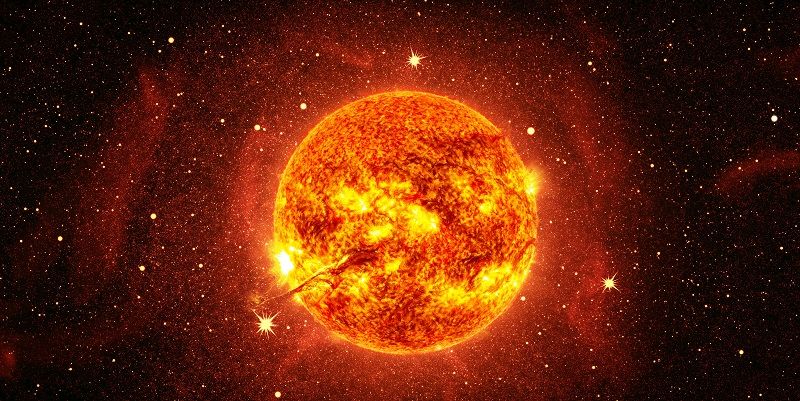
A Leeds professor has been awarded a prestigious fellowship to investigate one of the most complex areas of maths in astrophysics.
Steven Tobias, Professor of Applied Mathematics, has been elected to undertake a Rothschild Distinguished Visiting Fellowship in a research programme titled “Frontiers in dynamo theory: from the Earth to the stars”. The fellowship is hosted at the Isaac Newton Institute for Mathematical Sciences, an international mathematics research centre based in Cambridge.
Professor Tobias, based at Leeds’ School of Mathematics, is researching how the magnetic field of the sun is generated and why it changes polarity every 11 years – while Earth’s magnetic field can stay with one polarity for hundreds of thousands of years before flipping the magnetic North and South poles.
The answer lies in dynamo theory, which tries to explain how astrophysical objects, such as planets and stars, generate magnetic fields that stretch far out into space.
Magnetic fields are created by the combination of rotation and the turbulent motion of electrically conducting material, such as molten iron or hot ionised plasma, in the interior of the astrophysical object.
The interaction of fluids with magnetic fields makes astrophysical dynamo action particularly difficult to model - the molten fluids are very turbulent and understanding the way turbulent fluids behave is at the heart of dynamo theory, and Professor Tobias’ research is to identify better ways to model that turbulent flow.
Creating mathematical models that accurately model turbulence is complex enough, often requiring the computational power of supercomputers - but this is even more difficult when you are trying to simulate the conditions inside a star.
 .
.
Professor Tobias’ fellowship commences in the coming weeks. Each year, a small group of pre-eminent mathematicians from around the world are invited to take up the fellowships, to give keynote seminars at the Institute and lectures around the UK.
Past recipients of the award have included Fields medallists and Nobel Prize Winners.
Crucial role
Professor Tobias, who is the Director of the Leeds Institute for Fluid Dynamics, said: “I was obviously very pleased and honoured to be chosen as the Distinguished Visiting Fellow. The list of previous recipients includes some extremely eminent mathematicians, physicists and scientists and so it is a great honour.”
Although Professor Tobias’ research focuses on the physics of fluid flows on Earth and in astrophysics, it is likely to have an impact on other areas of science and engineering.
He said: “Fluid dynamics plays a crucial role in all our big societal challenges, be it attaining net zero, understanding climate or health. It also plays a key role in our economy. Developing our understanding of turbulent fluid flow will have significant spin offs in engineering, physics and the life sciences.”
Further Information
For more information, please contact David Lewis in the University of Leeds Press Office by email on d.lewis@leeds.ac.uk.
Top image: the sun. Credit: Adobe stock